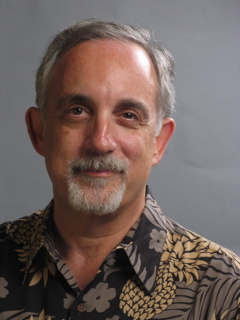Lotus Marketplace was a database program developed jointly by Lotus Development Corporation (as the software developer) and Equifax (as the information provider), announced on April 10, 1990, but cancelled shortly after on January 23, 1991, mainly due to massive protests and lawsuit threats, citing invasion of privacy. This program was rather large (even by today's standards), as it was supposed to be released on several CD-ROMs.

A database is an organized collection of data, generally stored and accessed electronically from a computer system. Where databases are more complex they are often developed using formal design and modeling techniques.

A computer program is a collection of instructions that performs a specific task when executed by a computer. A computer requires programs to function.
A software developer is a person concerned with facets of the software development process, including the research, design, programming, and testing of computer software. Other job titles which are often used with similar meanings are programmer, software analyst, and software programer.
Contents
Lotus Marketplace was to be released in two editions, Lotus Marketplace: Business (containing information about businesses) and Lotus Marketplace: Households (containing information about peoples and households).
The Business edition of this program contained information about 7 million businesses in the United States, just like Yellow Pages, but could quickly and flexibly be searched. Unlike the Households edition, this edition was not so controversial and was released in October 1990, but was cancelled along with the Households edition; concerns about profitability were cited.

Business is the activity of making one's living or making money by producing or buying and selling products. Simply put, it is "any activity or enterprise entered into for profit. It does not mean it is a company, a corporation, partnership, or have any such formal organization, but it can range from a street peddler to General Motors."

The United States of America (USA), commonly known as the United States or America, is a country comprising 50 states, a federal district, five major self-governing territories, and various possessions. At 3.8 million square miles, the United States is the world's third or fourth largest country by total area and is slightly smaller than the entire continent of Europe's 3.9 million square miles. With a population of over 327 million people, the U.S. is the third most populous country. The capital is Washington, D.C., and the largest city by population is New York City. Forty-eight states and the capital's federal district are contiguous in North America between Canada and Mexico. The State of Alaska is in the northwest corner of North America, bordered by Canada to the east and across the Bering Strait from Russia to the west. The State of Hawaii is an archipelago in the mid-Pacific Ocean. The U.S. territories are scattered about the Pacific Ocean and the Caribbean Sea, stretching across nine official time zones. The extremely diverse geography, climate, and wildlife of the United States make it one of the world's 17 megadiverse countries.
The Households edition of this program became infamous and the object of considerable opprobrium because it was supposed to contain private information about 120 million people and 80 million households in the United States. Information such as names, addresses, telephone numbers, demographic information, and prior purchasing behavior were contained in the program and could be searched quickly and flexibly. This program was strongly protested by many, who cited customer privacy issues (because using this program telemarketers could get hundreds of names and addresses, and mass mail those addresses without addressees' discretion). The backlash online was particularly intense, with a new Usenet newsgroup formed to discuss it. Information was circulated online about how to contact Lotus and request the removal of one's information from the database; more than 30,000 people would eventually so contact Lotus. The decision to not release it was seen as a victory for online activism. [1]

Privacy is the ability of an individual or group to seclude themselves, or information about themselves, and thereby express themselves selectively. The boundaries and content of what is considered private differ among cultures and individuals, but share common themes. When something is private to a person, it usually means that something is inherently special or sensitive to them. The domain of privacy partially overlaps with security (confidentiality), which can include the concepts of appropriate use, as well as protection of information. Privacy may also take the form of bodily integrity.

A household consists of one people who live in the same dwelling and share meals. It may also consist of a single family or another group of people. A dwelling is considered to contain multiple households if meals or living spaces are not shared. The household is the basic unit of analysis in many social, microeconomic and government models, and is important to economics and inheritance.

A telephone number is a sequence of digits assigned to a fixed-line telephone subscriber station connected to a telephone line or to a wireless electronic telephony device, such as a radio telephone or a mobile telephone, or to other devices for data transmission via the public switched telephone network (PSTN) or other public and private networks.





